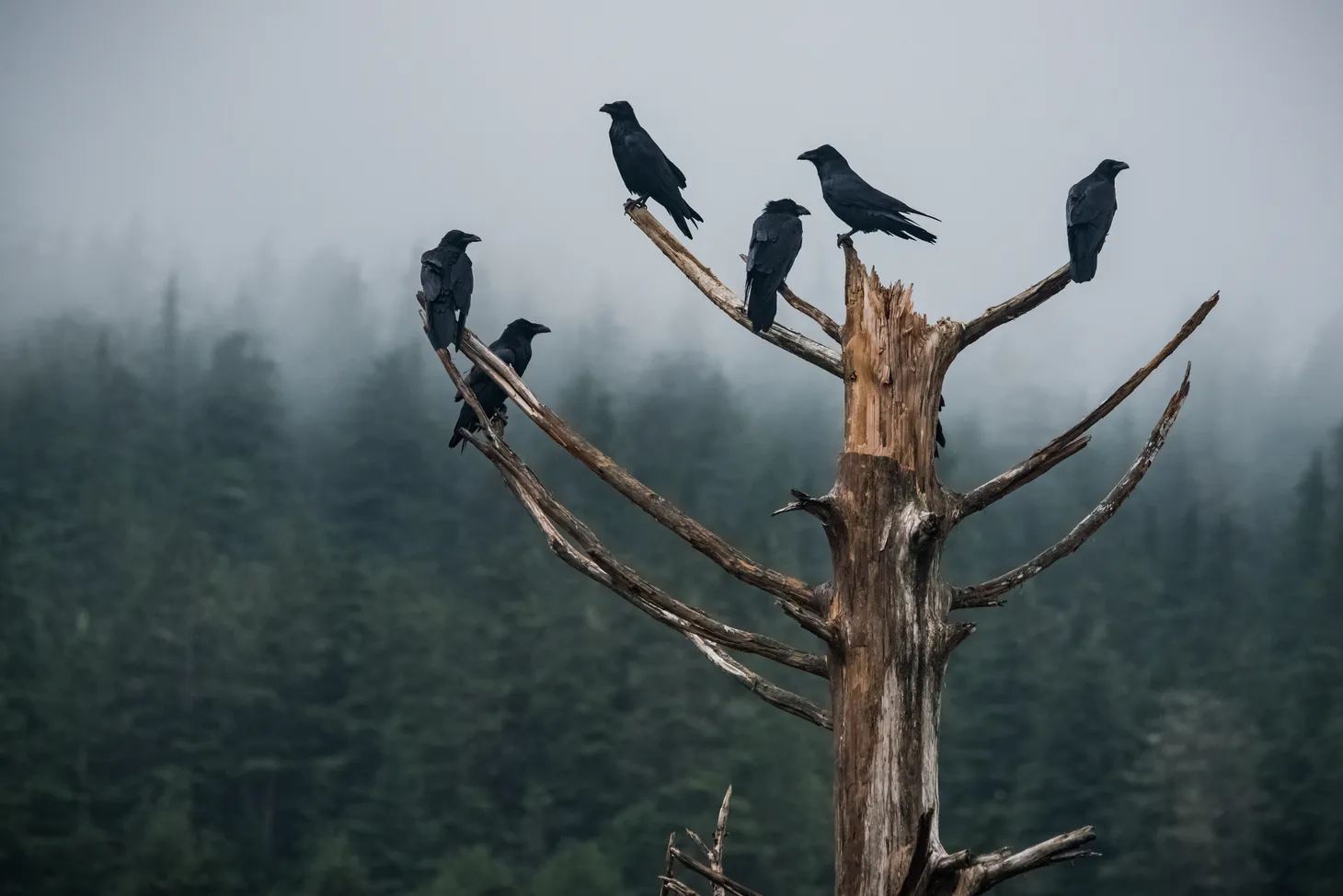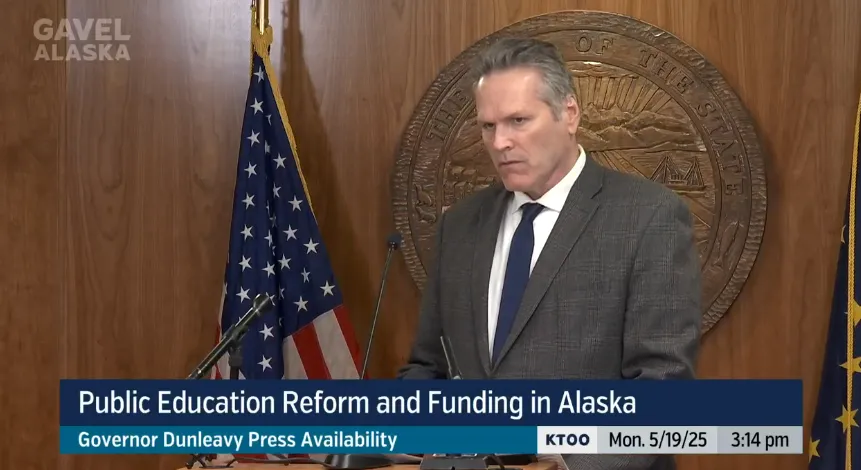'Many may not have homes to go back to.'
The long road ahead for victims of Typhoon Halong highlights just how far the state needs to come in its treatment of rural Alaska
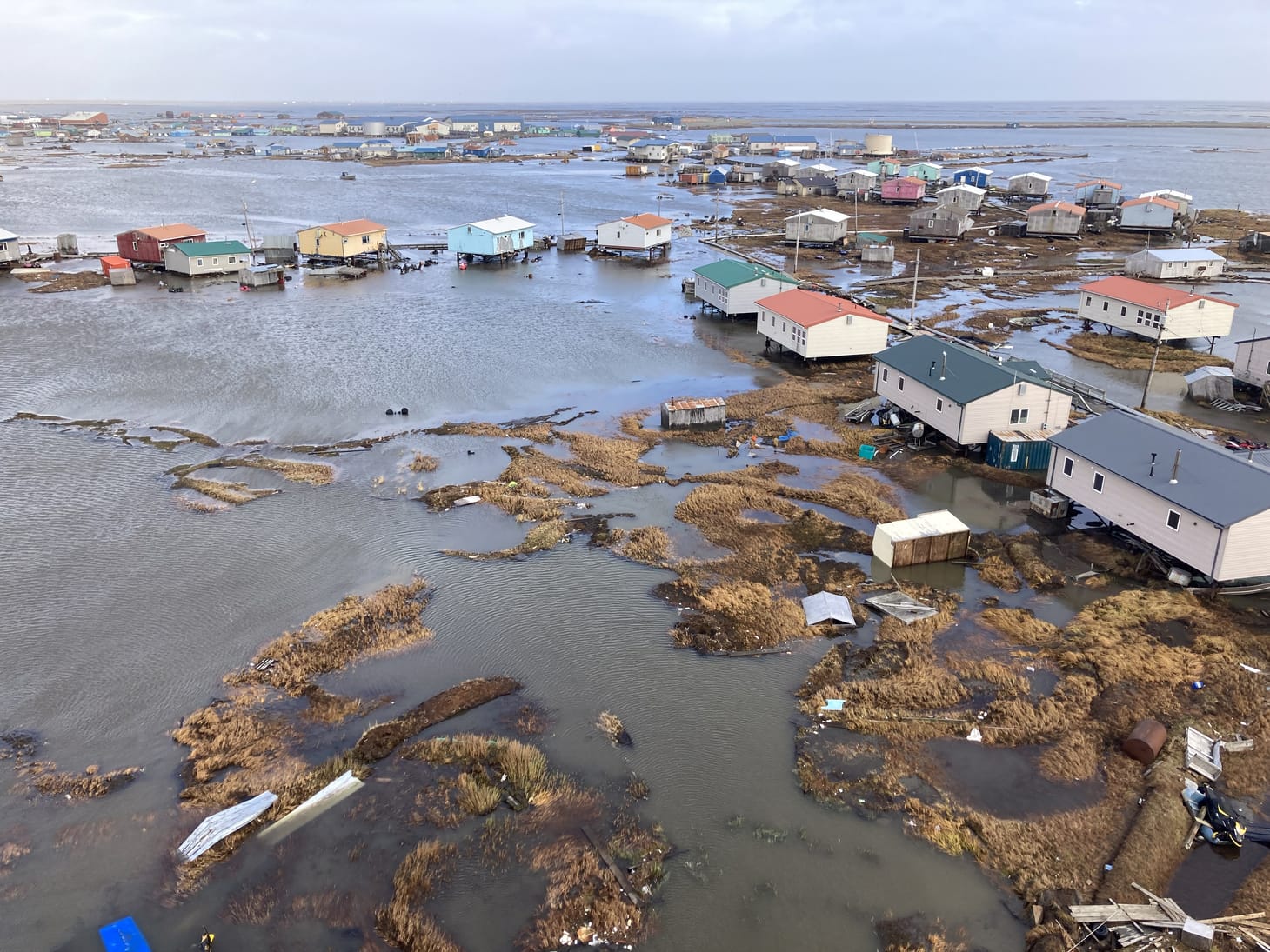
It's Friday, Alaska.
In this edition: The fallout from Typhoon Halong, which has displaced more than 1,500 predominantly Alaska Native residents from communities throughout western Alaska, is enormous, and the devastation is so severe that it will likely be many months or more before some communities can even consider returning home. It also comes at a critical moment where the government's longstanding failures to care for rural communities have been exacerbated by the ghoulishness of the Trump administration, but also served as a call at the Alaska Federation of Natives' annual convention to rise to meet challenges both new and old, addressing not only the immediate challenges to their communities but also the broader issues that have led to this moment. Also, the reading list and weekend watching.
Current mood: 💔
'Many may not have homes to go back to.'
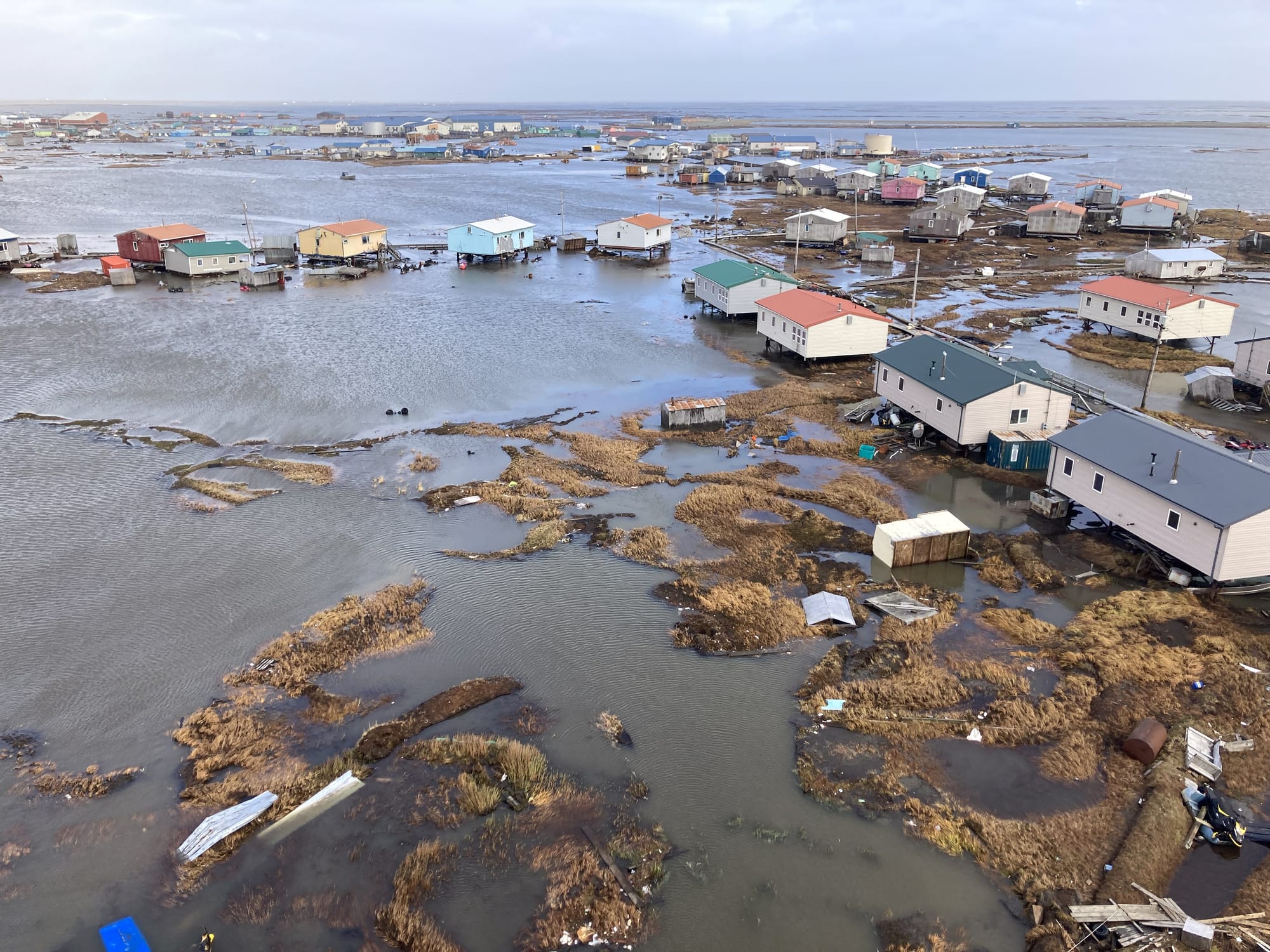
The Alaska Federation of Natives’ annual convention comes at a poignant time for the state, as more than 1,500 predominantly Alaska Native people living in western Alaska were displaced by devastating flooding caused by Typhoon Halong. Many of the stories emerging from the devastation are like that of Kipnuk resident Anna Smith, who told the Anchorage Daily News that she and her kids drifted miles downriver in their house after it separated from its foundation. The devastation has left many with little choice, forcing them to join one of the several massive evacuation flights out of their community to Anchorage, Fairbanks and Bethel.
“They just told me it’s best to go to Anchorage right now, so we’re going,” Smith said, saying that she doesn’t know how long she’ll be away or when and if her home might be repaired.
Throughout the convention, the calls for money and donations have been met with overwhelming generosity, but it’s readily apparent that the scope and scale of the devastation are enormous and will be long-lasting. With a fast-closing door before winter weather sets in and the existing logistical challenges of rebuilding communities off the state’s road system, it’s likely that many will spend the next months and more away from home, but just what that will look like is unclear.
“Many may not have homes to go back to,” said a letter jointly signed by House Speaker Bryce Edgmon of Dillingham, Senate President Gary Stevens of Kodiak, Bethel Sen. Lyman Hoffman and Toksook Bay Rep. Nellie Unangiq Jimmie to the governor, urging him to lead with empathy as the state helps the affected people rebuild and ultimately return.
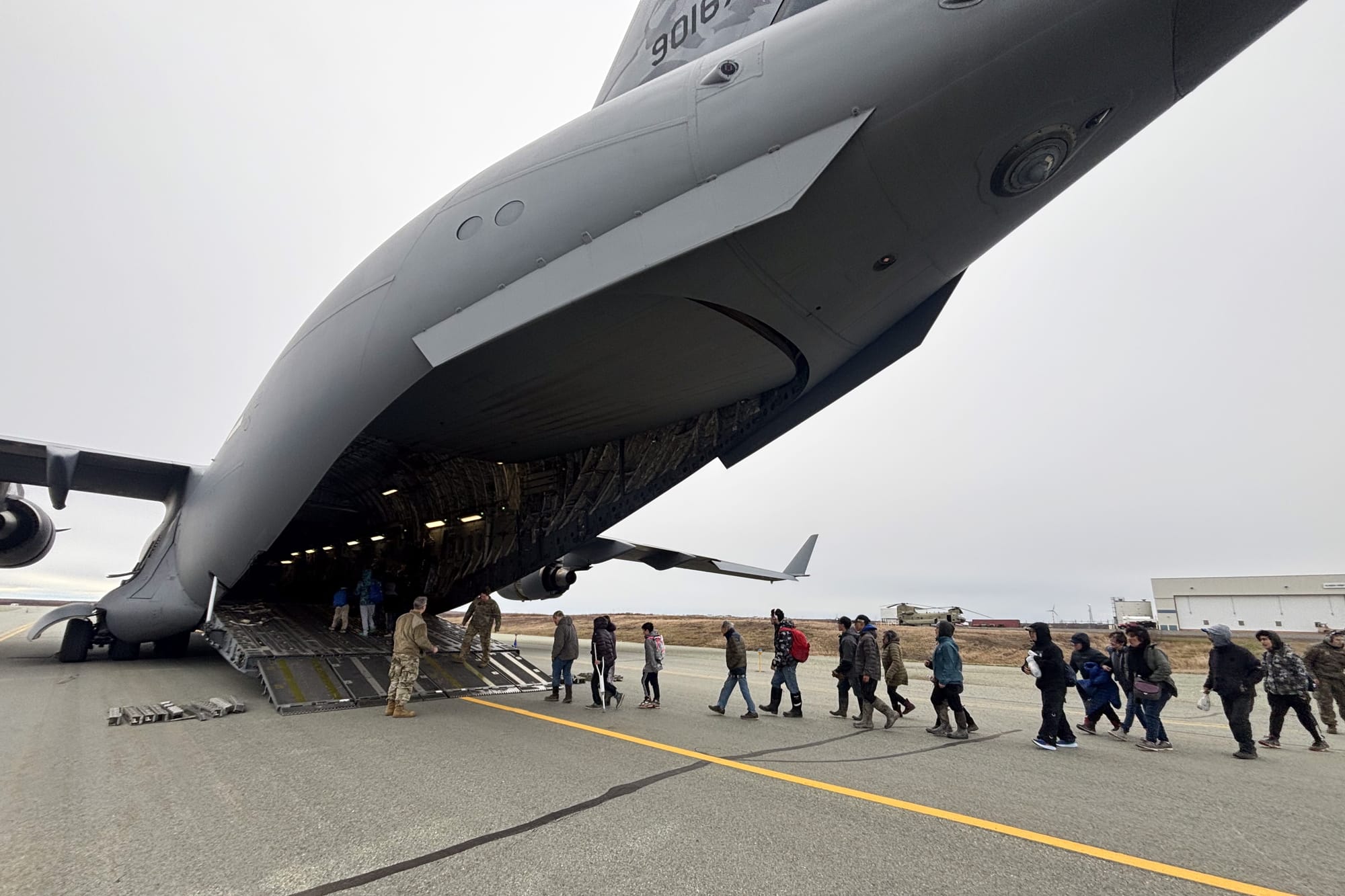
“We ask that the state do everything possible to treat the evacuated individuals with dignity and respect. The Alaska Airlines Center is not a long-term solution – we should be moving these individuals into hotels as swiftly as possible, as is a regular occurrence in the Lower 48 for victims of natural disasters,” they wrote, noting that many families had to evacuate with little more than the clothes on their backs. “Keeping them in mass shelters only prolongs the trauma and makes it impossible to go back to a semi-normal routine. We need to provide them with private space to process, grieve and assess next steps.”
To that end, a news conference hosted by Anchorage Mayor Suzanne LaFrance painted the massive logistical challenges ahead for everyone involved. The city has set up two mass shelters, which are both at capacity, but work is already turning to finding enough hotel rooms and other suitable mid- and long-term housing for the displaced. Others discussed investments that will aid communities in rebuilding and responding to future storms. Anchorage School District Superintendent Dr. Jharrett Bryantt noted they are working closely with the Lake and Peninsula School District to ensure the schooling of the more than 200 displaced young people continues with as little disruption as is possible.
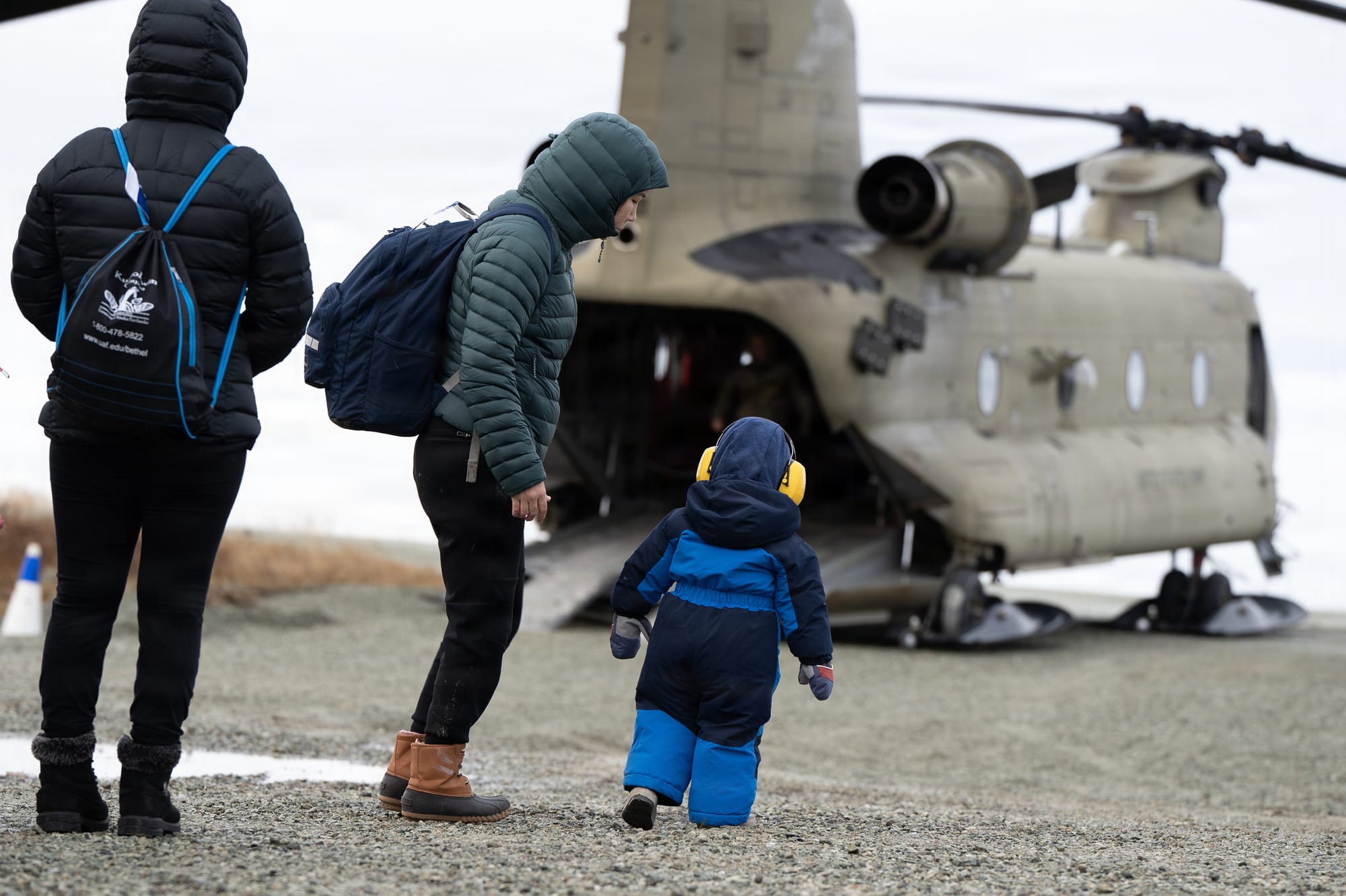
LaFrance said the response must keep the needs and well-being of the displaced victims of the storm in mind, especially as they enter uncharted territory.
“We don't want people to be in emergency shelter any longer than is necessary. It's tough to be in those big rooms with hundreds of other cots, and we've got families, so we are very focused on doing whatever we can in our role to help facilitate moving folks into non-congregate accommodations, like hotel rooms,” LaFrance said. “So much will depend on what people want to do. If folks want to stay here, we are prepared to help and assist with finding housing, as well as help people connect with resources to reunite with family and other parts of the state. We are here to support folks and recognize that the next steps at this point aren't entirely clear.”
It's also hard to overlook the fact that rural Alaskans have been hit particularly hard by Trump and friends’ attack on the federal government under the banner of “efficiency," an attack that has been largely endorsed by the state's Congressional Delegation and outright aped by Gov. Mike Dunleavy's administration.
The Federal Emergency Management Agency has already struggled to respond to disasters in the Lower 48 after losing a significant chunk of its workforce, so it's unclear if it'll be up to the task of helping these remote communities. Trump's hatchet job has also undercut weather forecasting, revoked grants for storm preparedness, cast uncertainty over the future of health care in rural America and gutted funding for the state’s critical network of public radio stations.
A spokesperson for the EPA even gloated to the ADN about Trump’s decision to rescind $20 million in funding for Kipnuk to mitigate erosion and strengthen its infrastructure against storm surges like this one.
“To be brutally candid, due to the proactive cancellation of this grant, $20 million of hardworking U.S. tax dollars are currently sitting in the U.S. treasury instead of swept into the Kuskokwim River,” EPA press secretary Brigit Hirsch told the paper.
According to Hirsch, the infrastructure project — which was approved under a climate preparedness project from the Biden era — was just liberals wasting money by trying to make the world a better place, claiming that “partisans on the left would apparently prefer to have seen those precious tax dollars washed away.”
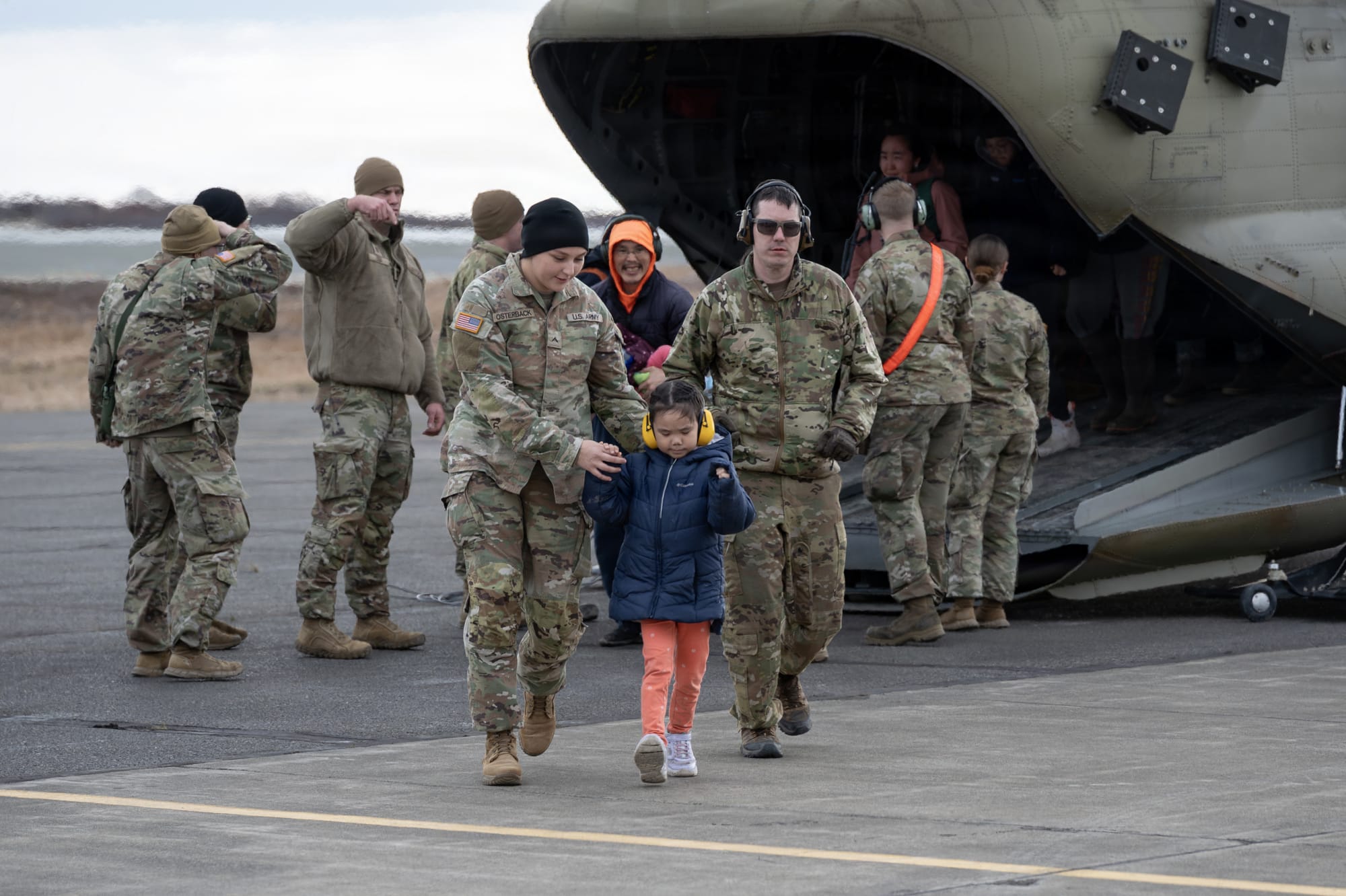
Of course, not everyone in the federal government's response has been quite as ghoulish as Hirsch. It's a good reminder that the National Guard is best when it's helping save people, rather than intimidating progressive cities. In a letter to the editor, American Federation of Government Employees Local 1110 President Lauren Boldrick detailed the frustration of on-the-ground civil servants who have seen firsthand the need for infrastructure. To them, she wrote, there's no partisanship about trying to help a community weather the storm.
"I feel I must state that these projects were not ideological, but were simply what our Alaska communities proved they needed to protect themselves against climate disasters — and were awarded after strict scrutiny," Boldrick wrote. "Maybe Kipnuk’s grant wouldn’t have prevented this year’s disaster, but now we know with certainty it can happen, and will continue to happen, just as Kipnuk said it could in their grant application. The dire need for these canceled critical infrastructure projects has always been clear. Shame on the administration and our congressional representatives. EPA non-political staff has begged and pleaded with our political leadership and representatives to no avail. None of you listened or cared, and now the consequences of your callousness are laid bare."
'I will not lie to my people'

Yet, in the face of adversity, AFN kicked off on Thursday with a message of determined resiliency in the face of challenges both new and old, addressing not only the challenges facing Alaska Native communities but also the broader issues that have led to this moment. ANTHC President/CEO Natasha Singh delivered a fiery keynote, urging Alaska Natives to act not only to address the disaster but to take a strong role in shaping the future of the state and its elected leaders.
She highlighted how problems around things like education, public safety and the mere maintenance of school buildings have faltered in large part because of the state's broad failure to meaningfully settle its budgetary woes.
"Basically, we're broke and we're past due on rent. Our children deserve better, our villages deserve better, and our state deserves better," she said, noting that the fight over a full PFD is essentially a mirage as long as people aren't willing to answer the question of what happens to revenue or state services. "Their plan is no plan, and now we feel these impacts. The Y-K Delta is in crisis, and entire communities have been displaced by a natural disaster. More than 1,000 Alaskans are without safe housing, power, transportation and basic essentials. What's the state doing to build resources over time that keep communities healthy and strong? ... I will not lie to my people. There is not enough revenue to support healthy communities and a full PFD. And anyone who promises a full dividend and a budget that helps healthy communities is not being honest. We simply don't have the money to pay for it."
She was sharp in her assessment of the upcoming elections, which will include the office of governor after GOP Gov. Mike Dunleavy reaches his term limit, as well as U.S. Sen. Dan Sullivan (who was treated to the cold shoulder today). Dunleavy has based much of his political platform on delivering a PFD, which he hasn't delivered, while opposing new revenues, leaving the state stuck in neutral for the last seven years. The race has already attracted more than 10 Republicans, many of whom have also based their campaign around promising a full payout.
"We should only elect leaders who are willing to enact tax policies that align with our vision for healthy communities. Otherwise, communities are left behind, and uncertainty hangs over our economy," Singh said. "We can't plan for the future, let alone build the kind of communities we deserve. Alaska and our Native communities deserve bold leaders from our governor to our legislators who prioritize policies and funding that will bring strong, resilient communities where everyone can thrive."
Her message was later echoed by AFN President Ben Mallott, who noted that Alaska Native turnout has cratered in recent years and compared it to the 1982 vote against an initiative that would have effectively ended subsistence preference in hunting and fishing.
“If we don’t vote, we give the government a reason to ignore us. If we don’t vote, we can’t protect subsistence,” he said. “I don't think we can do that again. I urge you and urge your communities to vote. If we don’t vote, we lose our voice. We need to vote like we used to in 1982."
AFN will continue on Saturday.
Stay tuned.
Reading list
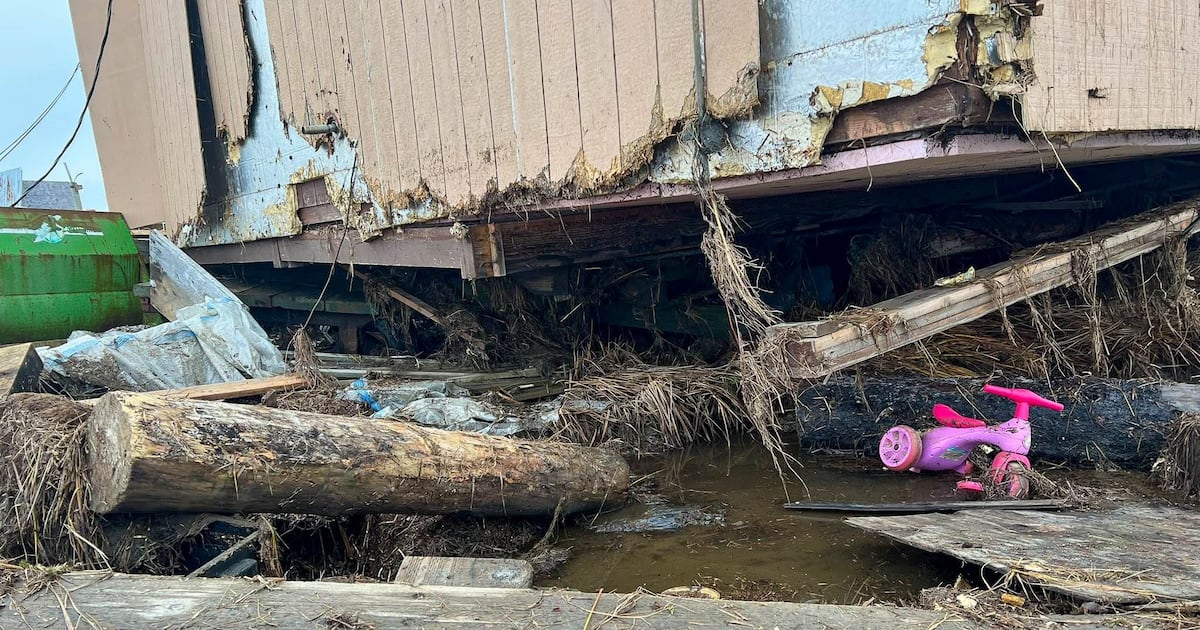

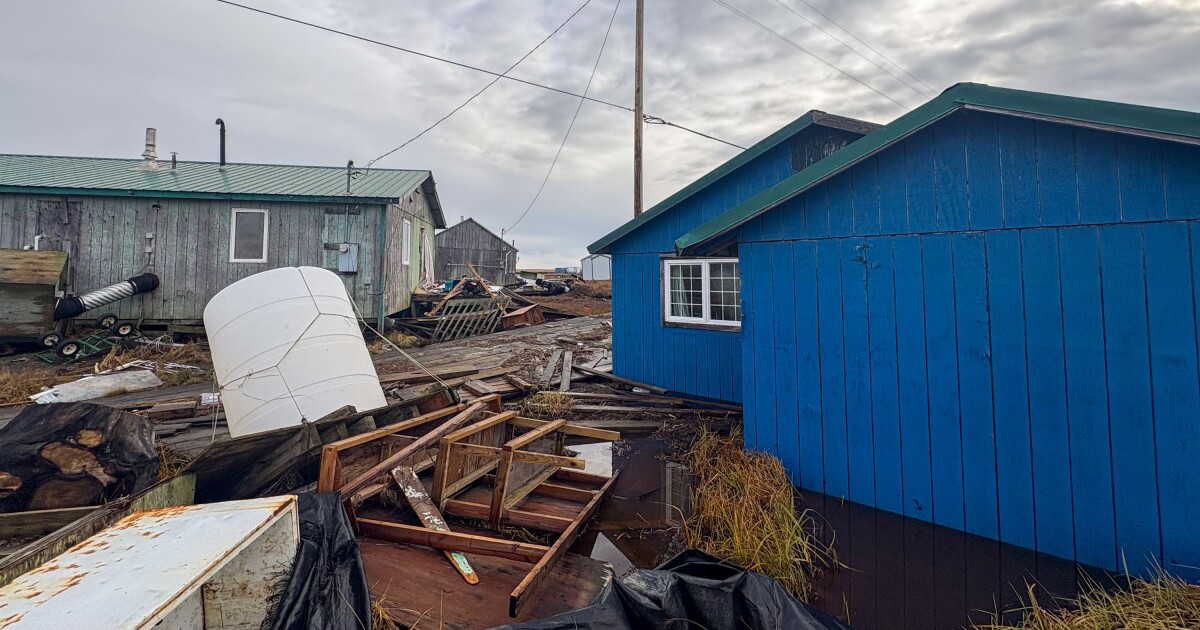
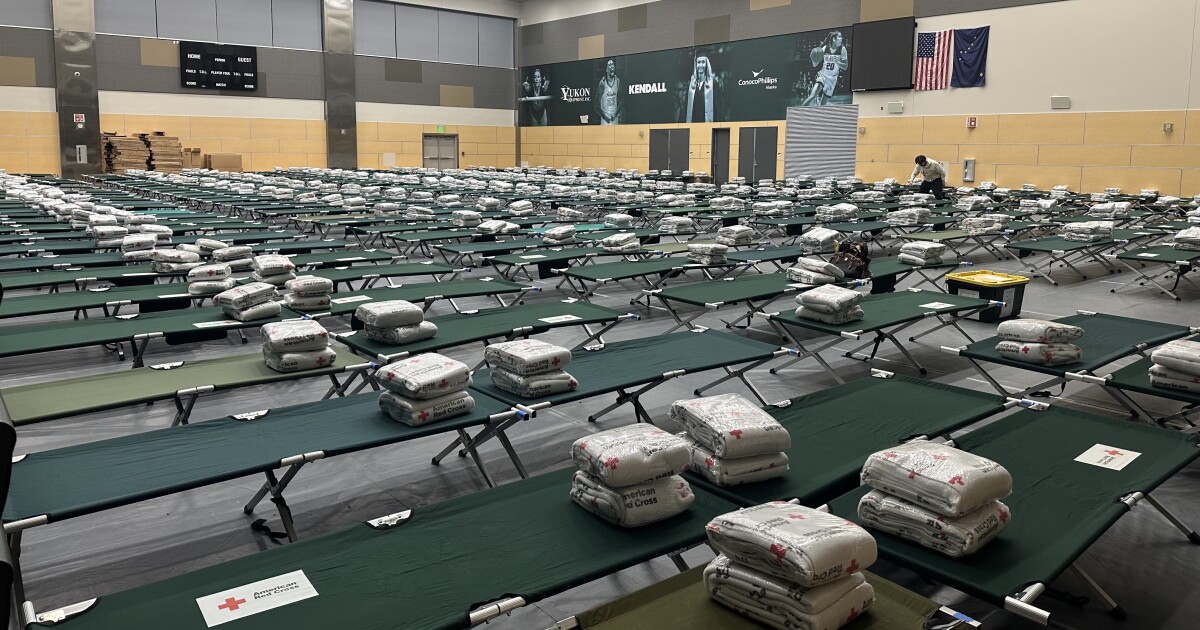
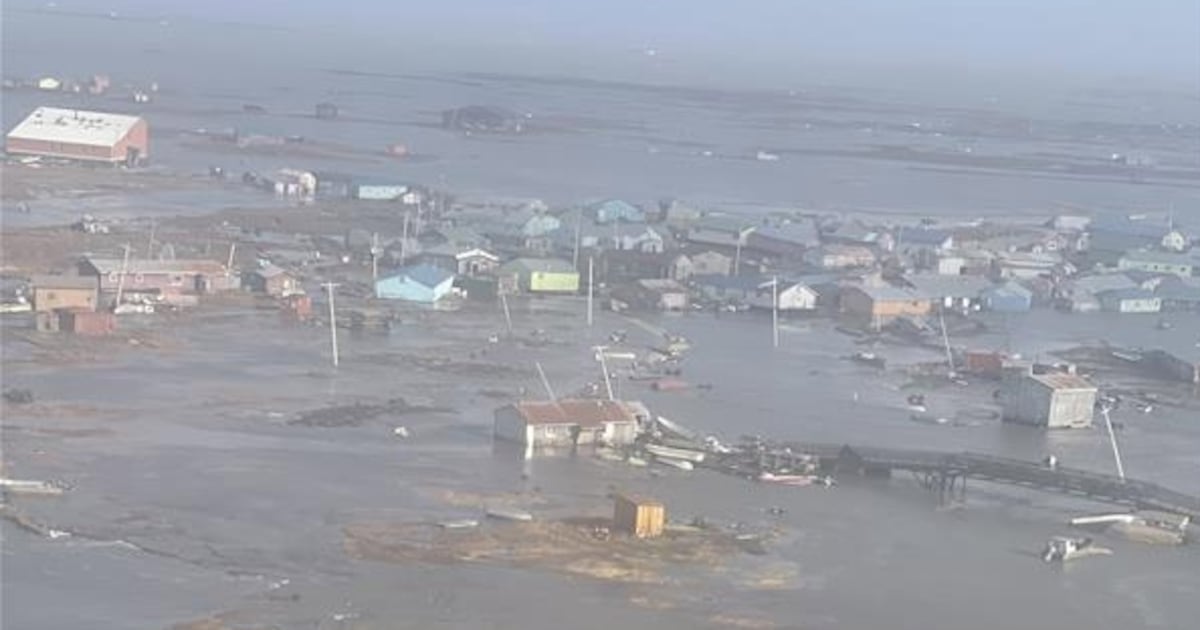
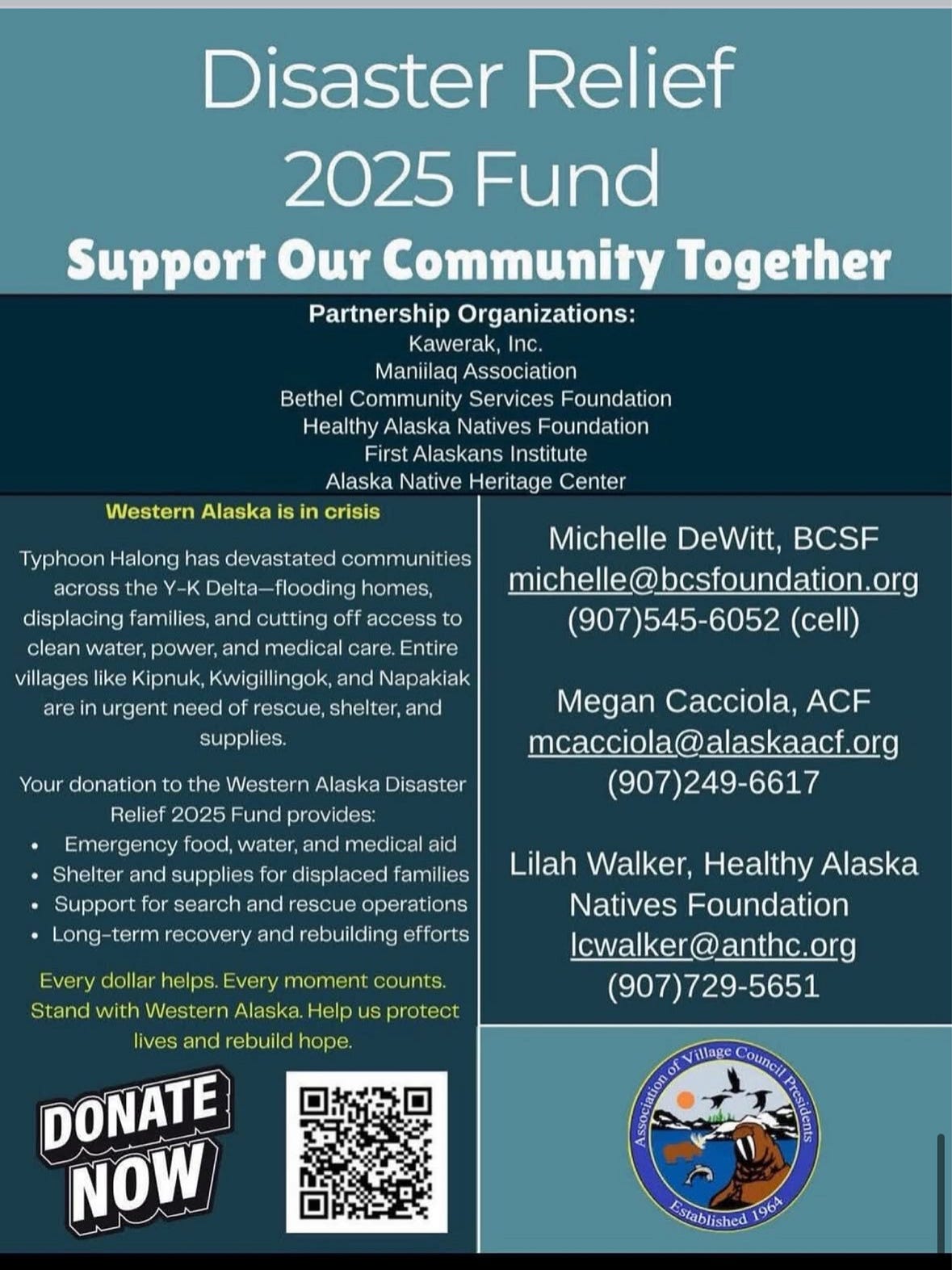
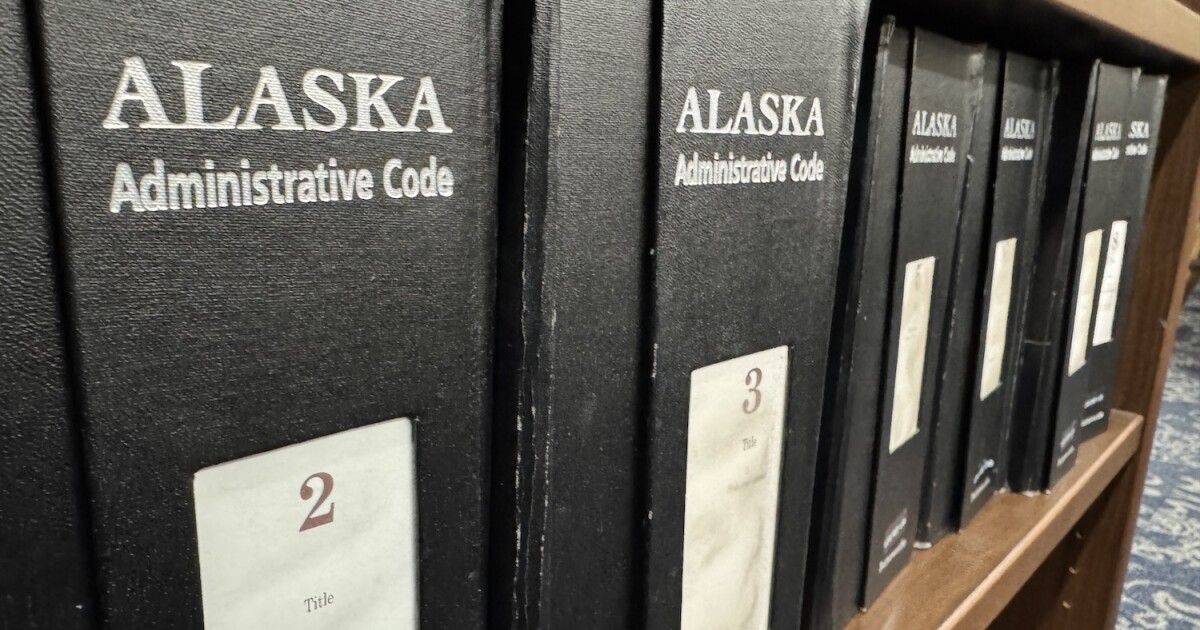
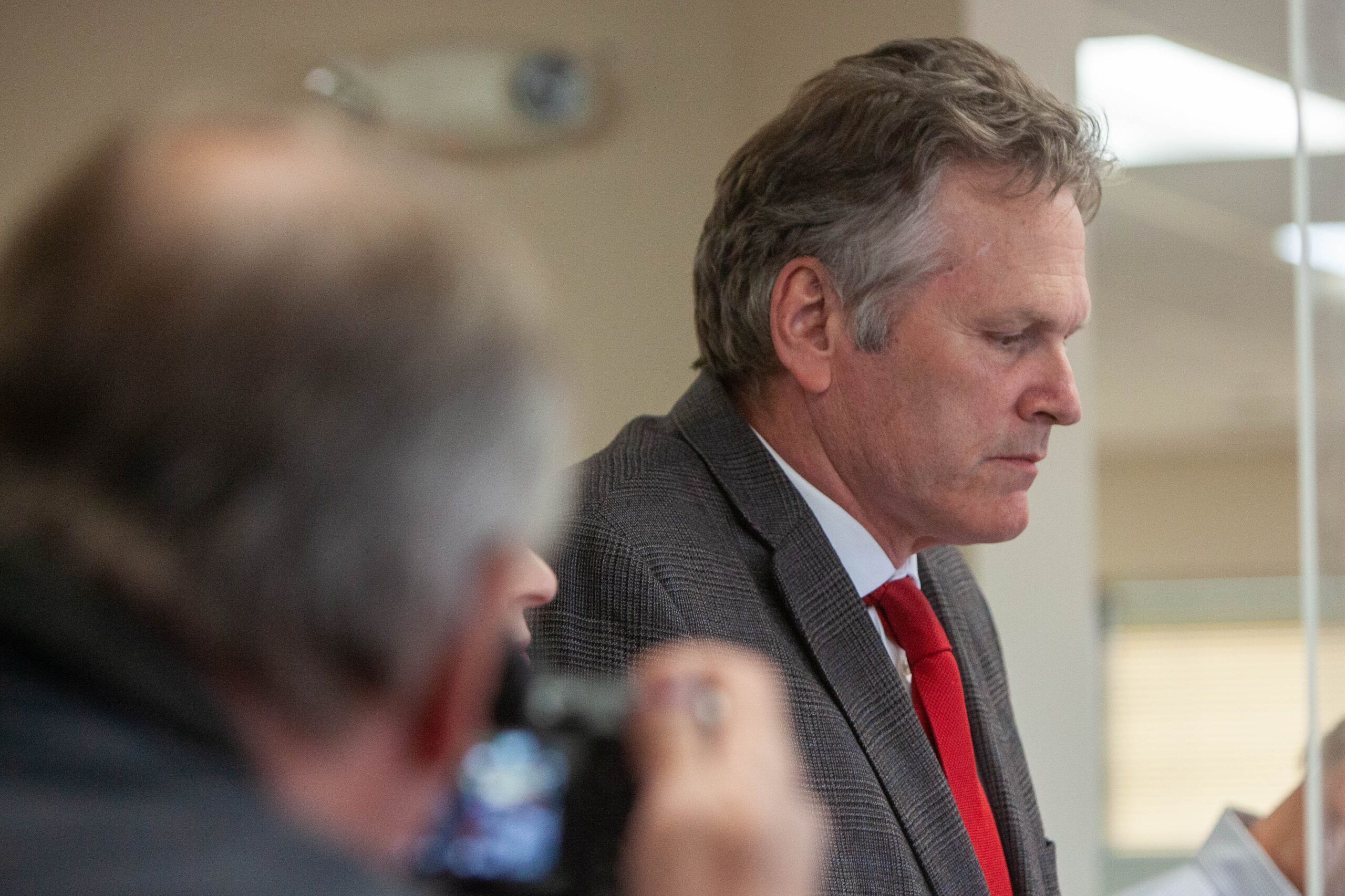
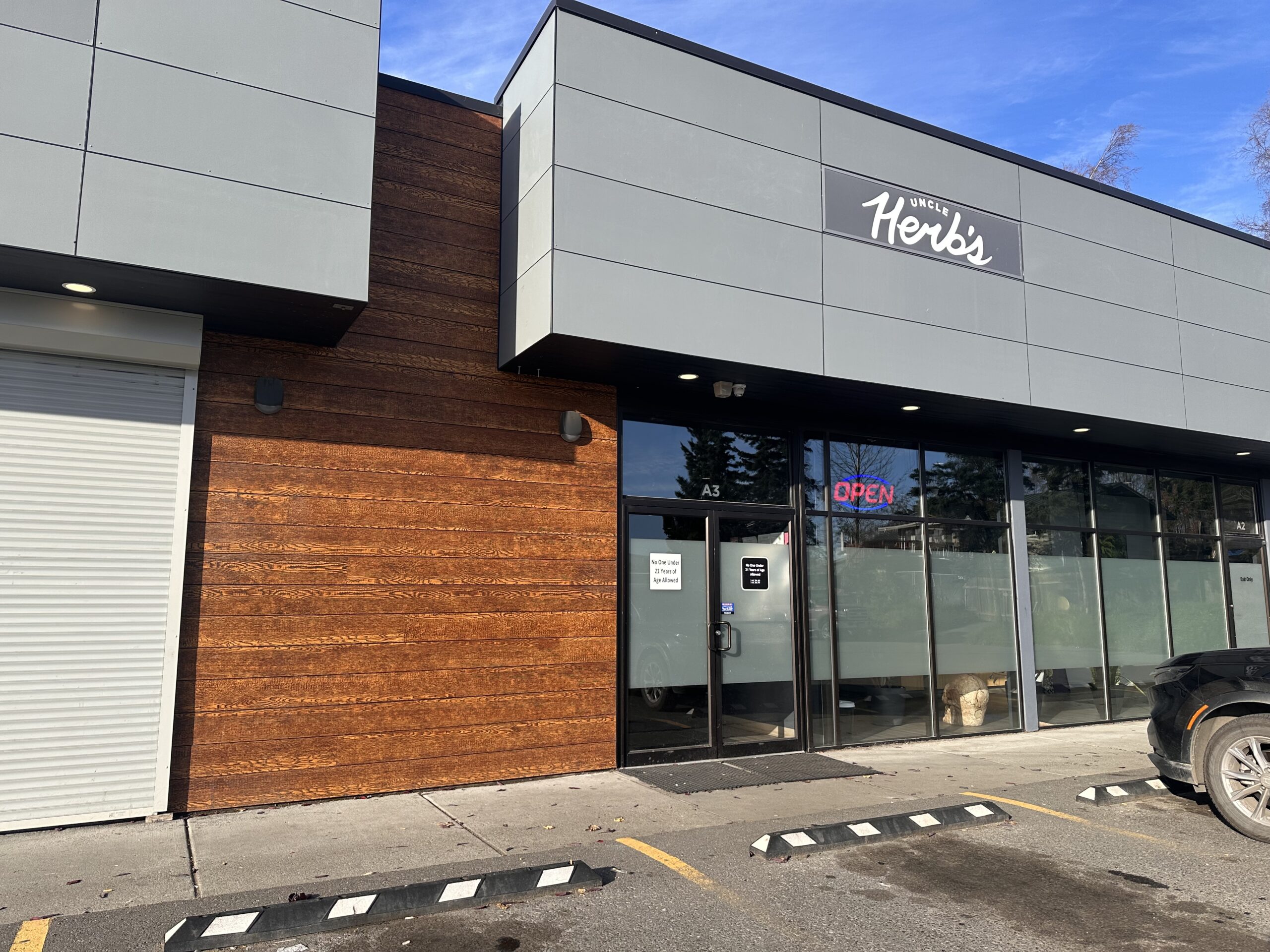
Weekend watching
Some chicken soup for the soul.
Have a nice weekend, y'all.
The Alaska Memo Newsletter
Join the newsletter to receive the latest updates in your inbox.










